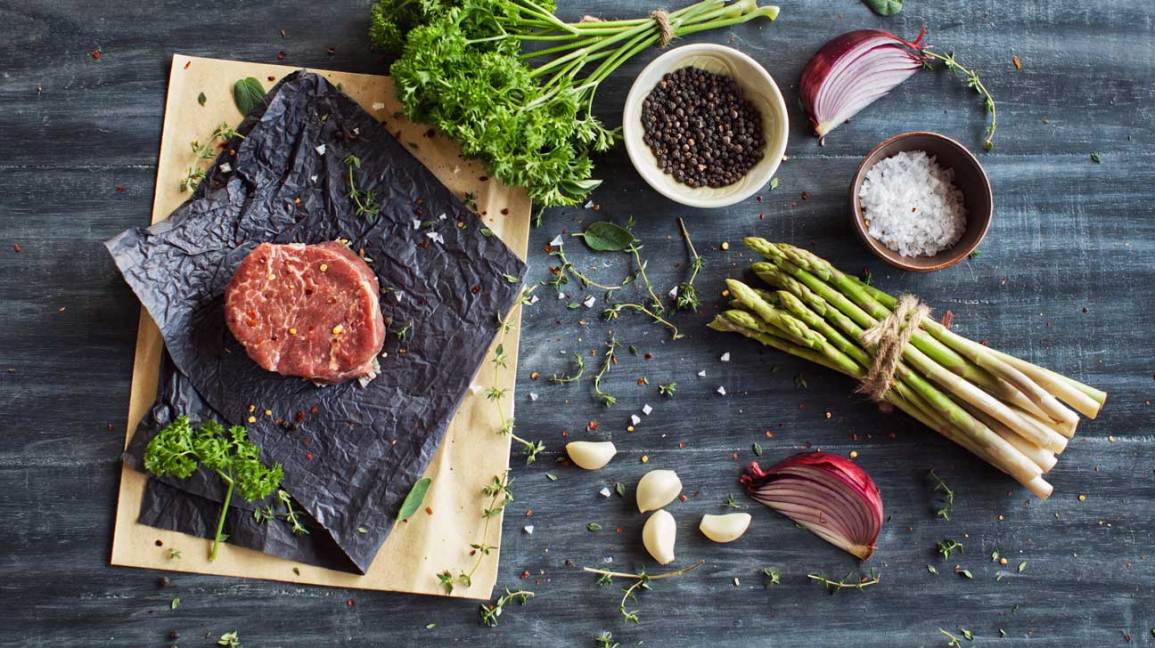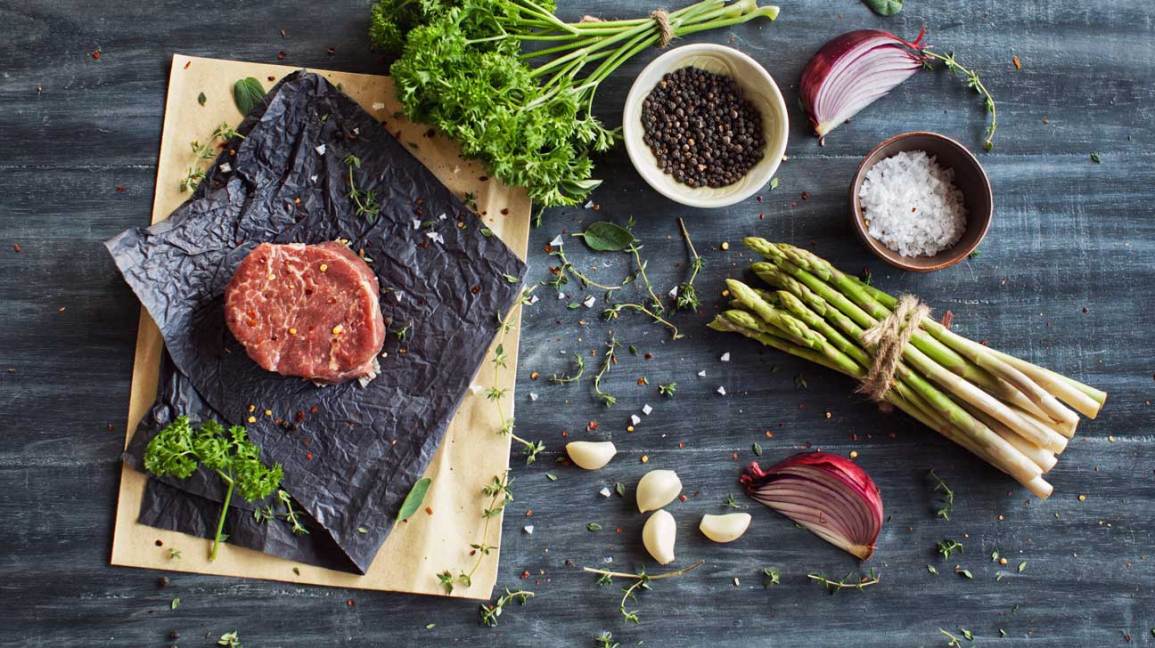Can Eating Meat And Vegetable Help With Weight Loss
What if I told you that embracing both meat and vegetables might be the key to a healthier weight? While fad diets come and go, the combination of protein-packed meats and fiber-rich vegetables has shown promise. This synergy not only provides essential nutrients but also supports satiety, reducing the temptation to overeat.
Historically, human diets have been diverse, incorporating various animal and plant-based foods. A study from the Journal of Nutrition reported participants who balanced their intake of meats and vegetables had better weight loss outcomes compared to calorie-restrictive diets. Such dietary choices help maintain muscle mass while promoting fat loss, offering a sustainable approach to health.

The Synergy of Meat and Vegetables
Combining meat and vegetables in your diet can enhance weight loss efforts. Meat provides essential proteins that help build muscle. Meanwhile, vegetables are rich in fiber, which aids digestion and keeps you feeling full longer.
Proteins from meat are crucial for maintaining muscle mass during weight loss. This is vital because muscle burns more calories than fat. Thus, preserving muscle can contribute to a higher metabolic rate.
Fiber from vegetables plays a key role in controlling hunger. It slows down digestion, making you feel fuller for extended periods. This can help reduce overall calorie intake.
The balance of meat and vegetables offers a wide array of nutrients that benefit overall health. This combination supports various biological functions. It also makes meals more satisfying and nutritionally complete.
The Role of Protein in Weight Loss
Protein is a crucial nutrient that can significantly aid in weight loss. Its role extends beyond muscle building. Consuming adequate protein can make the weight loss journey more effective and sustainable.
Protein and Muscle Preservation
One of the primary benefits of protein is its ability to help preserve muscle mass during weight loss. When you lose weight, it's essential to minimize muscle loss. Proteins provide the building blocks for muscle repair and growth.
This preservation is key because muscle burns more calories than fat, even at rest. This means maintaining your muscle mass can help keep your metabolism high. Including protein-rich foods like lean meats, eggs, and legumes in your diet can make a significant difference.
Protein and Satiety
Protein is also highly effective at increasing feelings of fullness, known as satiety. This can help reduce overall calorie intake, a fundamental aspect of weight loss. Meals high in protein often lead to reduced hunger and fewer cravings.
A study published in the American Journal of Clinical Nutrition found that increased protein intake leads to greater feelings of fullness throughout the day. This can help you stick to your dietary goals without constant hunger pangs. Including protein at each meal can be a simple yet effective strategy.
Types of High-Protein Foods
Incorporating a variety of high-protein foods can ensure you're getting a good mix of nutrients. Here are some excellent protein sources to include in your diet:
- Lean meats like chicken, turkey, and beef
- Fish and seafood
- Dairy products like Greek yogurt and cottage cheese
- Legumes, including beans and lentils
- Eggs and tofu
By diversifying your protein sources, you can keep your diet interesting and nutritionally balanced. This approach supports long-term adherence and contributes to sustained weight loss.
The Power of Plant-Based Foods
Plant-based foods are incredibly powerful for those looking to improve their health and lose weight. These foods are often rich in fiber, vitamins, and minerals. **Eating a variety of plant-based foods can provide your body with essential nutrients** while being lower in calories.
One of the main benefits is their high fiber content. Fiber helps to regulate your digestive system and keep you feeling full for longer. **This can be particularly helpful for those trying to reduce their calorie intake**.
- Leafy greens like spinach and kale
- Whole grains such as oatmeal and quinoa
- Legumes including beans, lentils, and chickpeas
- Fruits like berries, apples, and oranges
- Nuts and seeds
In addition to being nutrient-dense, plant-based foods are often low in unhealthy fats. They provide a great alternative to processed foods and can help lower cholesterol levels. **Incorporating more plant-based meals can lead to better overall health** and assist in weight management.
Effect of Meat and Vegetable Diet on Metabolism
A balanced diet that includes both meat and vegetables can have a positive impact on your metabolism. **Meat provides essential proteins that support muscle maintenance** and increase metabolic rate. On the other hand, vegetables offer vitamins, minerals, and fibers that optimize metabolic efficiency.
High-protein foods from meat sources help build and repair muscle. Muscle tissue requires more energy to maintain, thus burning more calories even at rest. **This makes a protein-rich diet essential for a faster metabolism**.
Vegetables provide fiber, which aids in digestion and stabilizes blood sugar levels. This stability prevents spikes and crashes that can slow your metabolism. **Incorporating a variety of vegetables ensures a steady energy supply** throughout the day.
Combining meat and vegetables in meals ensures a balanced intake of macronutrients. This combination supports different metabolic processes, promoting overall health. **Foods like lean meats, leafy greens, and legumes can work together to boost your metabolic rate**.
A diet rich in both meat and vegetables can also enhance nutrient absorption. Some vitamins require fats or proteins to be absorbed efficiently. **Eating a variety of foods ensures that you get the most out of your meals**.
Addressing Common Misconceptions
There are several misconceptions about combining meat and vegetables in a diet. One of the most common is that eating meat leads to weight gain. **While meat can be calorie-dense, it's the portion sizes and preparation methods that often result in extra calories**.
Another misconception is that a plant-based diet lacks sufficient protein. This isn't true as many vegetables, legumes, and grains offer substantial protein. **Foods like beans, lentils, and quinoa can provide all essential amino acids**.
- Myth: All fats are bad for you
- Fact: Healthy fats can boost metabolism
- Myth: Carbs should be entirely avoided
- Fact: Complex carbs are essential for energy
People often believe that eating only salads will result in weight loss. While vegetables are crucial, a balanced diet includes proteins and healthy fats. **Combining these elements ensures you get a full range of nutrients**.
Finally, it's a misconception that eating frequently speeds up metabolism. What matters more is the quality and nutrient density of the food. **Focusing on nutrient-rich meals can be more beneficial than frequent snacking**.
The Importance of Nutritional Balance
Nutritional balance is essential for maintaining overall health and well-being. **It ensures your body gets a mix of macronutrients**, including proteins, fats, and carbohydrates. A well-balanced diet provides all the vitamins and minerals needed for various bodily functions.
Protein helps build and repair tissues. Carbohydrates are the primary source of energy. **Fats are necessary for hormone production and nutrient absorption**.
- Proteins: Meat, fish, beans
- Carbohydrates: Whole grains, fruits, vegetables
- Fats: Nuts, seeds, avocados
A balanced diet can also aid in weight management. It helps regulate hunger and energy levels throughout the day. **This makes it easier to stick to healthy eating habits**.
Variety is key when it comes to nutritional balance. Each food group offers unique benefits. **Incorporating different types of foods can make your meals more enjoyable and nutritious**.
Practical Tips for Balancing Meat and Veggies
Balancing meat and veggies in your diet can improve nutrition and make meals interesting. **Start by filling half your plate with vegetables**. This ensures you get enough fiber, vitamins, and minerals.
Choose lean meats to keep your protein intake healthy. Options like chicken, turkey, or fish are low in unhealthy fats but high in protein. **These choices support muscle maintenance without adding excess calories**.
- Grill or bake meats rather than frying them
- Experiment with veggies such as spinach, broccoli, or bell peppers
- Add herbs and spices instead of heavy sauces
Mixing meat with a variety of vegetables can enhance the flavor and nutritional value of your dishes. Stir-fries, salads, and soups are excellent ways to combine these ingredients. **This makes it easier to enjoy well-rounded meals**.
You can also opt for plant-based proteins occasionally. Foods like beans, lentils, or tofu offer protein without animal fat. **Incorporating these foods can diversify your diet while maintaining nutritional balance**.
Proven Benefits Beyond Weight Loss
Eating a balanced diet of meat and vegetables offers numerous health benefits beyond weight loss. **This combination provides a wide range of essential nutrients**. Vitamins, minerals, and antioxidants all contribute to overall wellness.
Consuming a variety of vegetables is linked to a lower risk of chronic diseases. These include heart disease and certain types of cancer. **Antioxidants found in vegetables help protect your cells from damage**.
Lean meats are a great source of high-quality protein, which is vital for muscle repair. This can be particularly beneficial for those engaging in regular physical activity. **Strong muscles support better physical performance and reduce injury risk**.
Fiber from vegetables aids in digestive health. A healthy digestive system can improve nutrient absorption and overall metabolism. **This leads to better energy levels and overall health**.
The nutrients in meat and vegetables also support brain health. Omega-3 fatty acids from fish and vitamins from leafy greens can enhance cognitive function. **Eating a balanced diet helps keep your mind sharp and focused**.
Frequently Asked Questions
Here are some common questions and answers about the impact of eating meat and vegetables on weight loss. These provide deeper insights into why this balanced approach is effective and how you can maximize its benefits.
1. How does protein in meat help with weight loss?
Protein in meat helps build and repair muscle, which boosts metabolism. Higher metabolism means your body burns more calories even when at rest.
This makes it easier to lose weight without feeling hungry all the time. Additionally, protein is known to promote feelings of fullness, reducing the overall intake of calories.
2. Why is fiber from vegetables important for weight loss?
Fiber from vegetables slows digestion, making you feel full longer. This helps reduce overall calorie consumption throughout the day.
Fibrous foods also help stabilize blood sugar levels, preventing spikes that can lead to cravings. This promotes a more balanced diet, aiding in sustained weight loss.
3. Can combining meat and vegetables enhance nutrient absorption?
Yes, combining meat and vegetables can improve nutrient absorption. Certain vitamins require fats or proteins for better absorption.
This synergy ensures you get the most out of every meal, making your diet more nutritionally balanced. It supports both general health and effective weight management.
4. What types of meats are best for a balanced diet?
Lean meats like chicken, turkey, and fish are excellent choices for a balanced diet. They offer high protein content with lower fat levels than red meats.
This keeps calorie counts low while still providing essential nutrients necessary for muscle maintenance and overall health.
5. Are there any common misconceptions about eating meat for weight loss?
A common misconception is that eating meat will automatically lead to weight gain due to high calorie content. However, portion control and choosing lean cuts can mitigate this risk.
An important point is selecting cooking methods that do not add unnecessary fats or sugars. Lean proteins combined with veggies contribute effectively to a healthy diet suitable for weight loss goals.
Conclusion
Incorporating both meat and vegetables in your diet can serve as a powerful strategy for sustainable weight loss. The combined benefits of protein and fiber offer a comprehensive approach to managing your weight effectively. It promotes muscle maintenance and enhances satiety.
By balancing your meals with a variety of nutrients, you support overall health and well-being. This approach not only assists in weight management but also provides essential vitamins and minerals. Ultimately, a well-rounded diet of meat and vegetables is key to long-term success and a healthier lifestyle.
